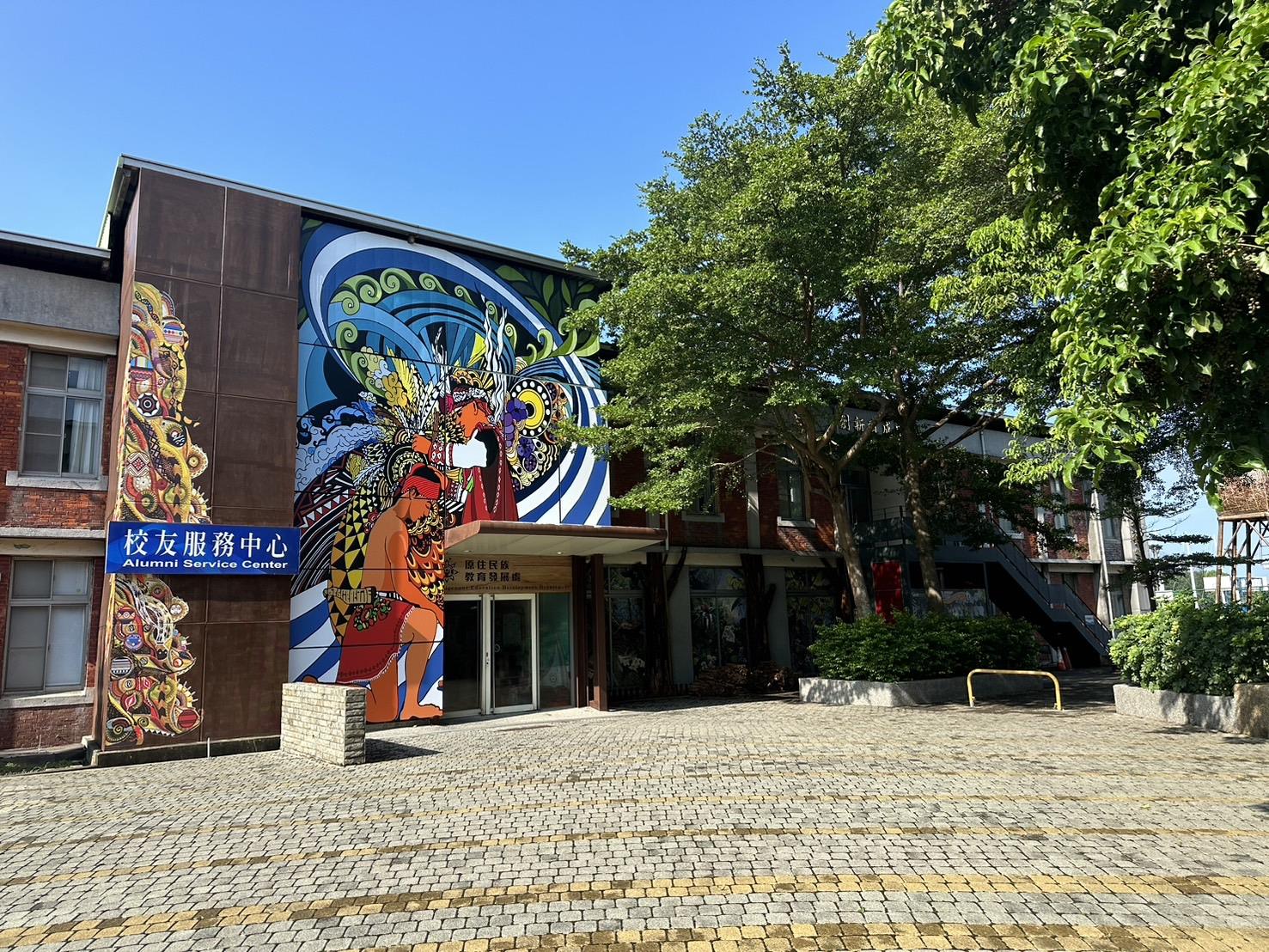單位介紹
一、無縫接軌一級行政單位「原住民族教育發展處」
本校於109學年度向教育部申請校內「正式編制組織一級行政單位「原住民族教育發展處」強化原住民族學生資源中心」納入高教深耕提升高教公共性之策略發展中,具有強化、提升、獨立發展原住民族教育的「行政管理團隊」,亦能促進獨立思考規劃行政單位及橫跨校級一級主管單位:教、學、總及五大學院與校內20個系,並在共同學院通識教育中心設置具有教學及研究之功能的「原住民族教育通識中心」以利整合全校性的分類通識課程八大領域其一(生命教育/世界公民/思辨創意/運動健康/藝術美感/未來前瞻/原住民族知識/華語文化)獨立領域設計學分學程,納入「全校性之學習必/選修之課程」落實「全民原住民教育」推廣之精神,以突破限制性籓籬,原住民知識而形成開放與普及的學習管道,乃以本校推動原住民族教育發展決心。
二、整合原民教育資源—強化原住民族學生資源中心
本校依據教育部「原住民族教育法」第18條申請設置「原住民族學生資源中心」(以下簡稱原資中心),並於107年2月1日獲教育部核定同意,經一年的籌備執行計畫與落實對原住民族學生各項學習之發展,其第一年之成效顯見戮力推動之決心,並於108年4月17日正式舉行揭牌儀式,當日特別邀請教育部中央長官、民意立法機關委員、在地首長、民意機關代表人及關注於原民教育者,一同見證本校落實經營、教育延展各族群之原住民學生。
原資中心同時納入「校務整體規劃之重點發展策略」,藉由長期規劃與執行策略,除了本中心之業務工作,更整合與爭取校內外資源,擴大連結本校各院、各系之學術專業、技術培植,透過原資中心整合資源、開發多元民族文化的教學設計,導入內外部相關民族文化師資,不僅讓學生在本質在校專業學習的技能及學術的養成,更可以獲得台灣原住民族文化、歷史、語言、藝術、產業、經濟、法治的薰陶,原資中心致力於維護與推廣傳承原住民族文化資產,孕育原住民族菁英人才與領導者,以培養學生對民族認同進而找回使命感,成為部落未來發展與延續培育人才的基地。
Seamless Integration of the First-Level Administrative Unit: "Aboriginal Education of Development "
Our university applied to the Ministry of Education in the 109th academic year to establish the on-campus "Aboriginal Education Development Office" as an officially structured first-level administrative unit. This initiative aims to strengthen the Indigenous Student Resource Center and integrate it into the Higher Education Sprout Project's strategy for enhancing the public nature of higher education.
The Aboriginal Education Development Office serves as an administrative management team dedicated to reinforcing, elevating, and fostering the independent development of Aboriginal education. It also facilitates independent planning and cross-level administrative coordination among university-wide first-level administrative units, including the Academic Affairs, Student Affairs, and General Affairs offices, as well as five major colleges and 20 academic departments.
Additionally, the university has established the Aboriginal Education General Studies Center within the General Education Center of the Common College. This center functions as both a teaching and research hub, integrating one of the eight core categories of the university’s general education curriculum: (1) Life Education, (2) Global Citizenship, (3) Critical Thinking and Creativity, (4) Sports and Health, (5) Aesthetic and Artistic Appreciation, (6) Future-oriented Studies, (7) Aboriginal Knowledge, and (8) Chinese Language and Culture.
The center is designed to develop independent credit programs and incorporate them into university-wide required and elective courses, promoting the spirit of "Aboriginal Education for All." By breaking restrictive barriers, this initiative transforms Aboriginal knowledge into an open and widely accessible learning channel, reflecting the university's commitment to advancing Aboriginal education.
Integrating Indigenous Education Resources – Strengthening the Indigenous Student Resource Center
Our university, in accordance with Article 18 of the Ministry of Education’s Indigenous Peoples Education Act, applied for the establishment of the Indigenous Student Resource Center (hereinafter referred to as the ISRC). The application was approved by the Ministry of Education on February 1, 2018. After a year of preparation and implementation, the center successfully facilitated various learning and development opportunities for Indigenous students. The first-year outcomes demonstrated the university’s strong commitment to this initiative, culminating in an official unveiling ceremony on April 17, 2019. On that day, we had the honor of inviting senior officials from the Ministry of Education, legislative representatives, local government leaders, and advocates for Indigenous education to witness the university’s dedication to fostering an inclusive educational environment for Indigenous students from all tribes.
The ISRC has been incorporated into the university’s Key Strategic Development Plan for Institutional Affairs. Through long-term planning and execution strategies, the center not only carries out its own responsibilities but also integrates and secures resources both within and beyond the university. It works to strengthen academic and technical training across various colleges and departments. By leveraging the ISRC's capacity to consolidate resources and develop diverse Indigenous cultural education programs, the center introduces both internal and external Indigenous cultural educators into the curriculum. This initiative allows students to acquire not only professional skills and academic knowledge in their respective fields but also a deeper understanding of Taiwan’s Indigenous cultures, histories, languages, arts, industries, economy, and legal systems.
The ISRC is dedicated to preserving, promoting, and passing down Indigenous cultural heritage. It nurtures Indigenous elites and future leaders, fostering a strong sense of ethnic identity and rekindling students’ sense of mission. Ultimately, the center serves as a foundation for cultivating talent essential to the future development and sustainability of Indigenous communities.
